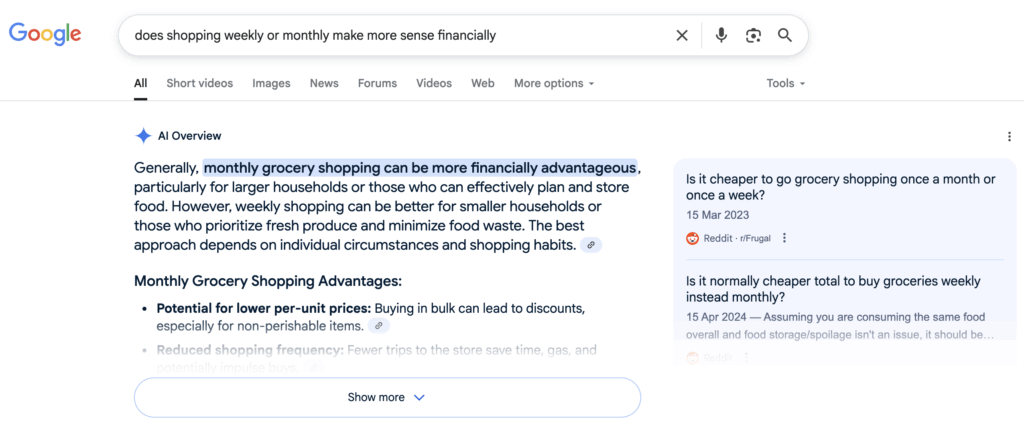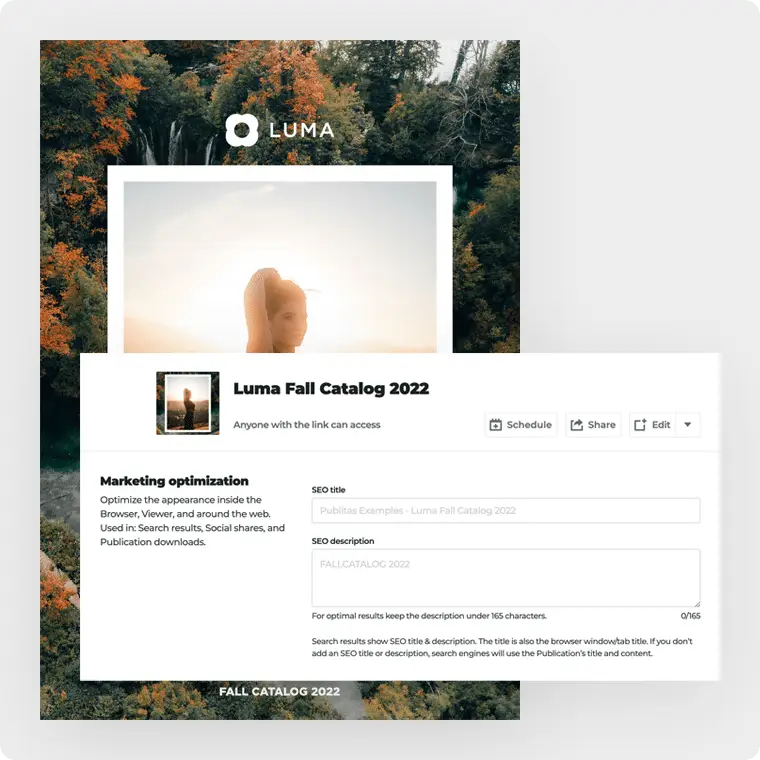AI search is reshaping how people discover content online, changing SEO. We’ve certainly moved far beyond the days of black hat SEO tricks like stuffing pages with hidden or irrelevant keywords. With tools like Google’s Search Generative Experience (SGE), Gemini, Bing Copilot, and AI-powered assistants such as ChatGPT now influencing how users get answers, the traditional SEO playbook is no longer enough.
Recent media coverage has raised alarm about how AI-powered search features, like Google’s AI Overviews and chatbot-style results, may hurt publishers by reducing click-through traffic. According to WSJ, publishers such as HuffPost, Forbes, and Business Insider have reportedly seen sharp declines, sometimes as much as 40%, in organic search referrals. Google, however, contests these claims, stating that overall click volume remains “relatively stable” year-over-year, and that the quality of clicks has even improved, though shared data doesn’t back these assertions. Still, Google acknowledges that traffic shifts are real, benefitting some sites while diminishing others.
To stay visible and relevant, businesses and content creators must understand how AI search works, what it prioritizes, and how to adapt their SEO strategies accordingly.

Here are six of the most-asked questions about AI search, and what they mean for your SEO strategy.
1. What is AI search, and how is it different from traditional search?
AI search refers to search experiences powered by generative AI, where users receive direct, conversational responses instead of a simple list of links. Google’s SGE is a prime example. Users type a question and get a synthesized answer drawn from multiple sources, often without clicking through to websites.
This shift challenges the old SEO model. Instead of competing for the top organic spot, the goal becomes:
How can I get my content included in the AI-generated answer?
That means optimizing for clarity, structure, and authority so AI systems can easily understand and confidently pull from your content. Each platform has created its own AI system; Google, Bing, Apple, and ChatGPT are all examples. Each platform requires a different way of thinking and should be planned according to your strategy. We recently wrote a helpful guide on how to get featured in ChatGPT’s results.
2. What kind of content gets featured in AI search results, and how do I get featured?
As an example, in Google’s new AI-powered search experience, users are shown a curated selection of article links and website recommendations directly alongside AI-generated answers. It works like a smart review board for the best possible sources.
For brands, getting featured here isn’t about gaming the system with keyword stuffing but becoming the most credible, relevant, and trusted authority. This means creating high-quality, well-structured content that directly answers user questions, backed by reputable sources and optimised for traditional SEO and AI search principles. Brands that consistently publish authoritative, user-focused content have a far better chance of being surfaced by AI as part of these curated results, securing visibility right where the decision-making happens.
AI models look for content that is:
- Clear and well-structured (headings, bullet points, FAQs)
- Semantically rich (written in natural language, matching user intent)
- Credible (includes authorship, sources, timestamps)
- Focused (answers a specific question or topic directly)
If your content is vague, overloaded with keywords, or poorly organized, it’s far less likely to be used in AI-generated answers.
3. Is keyword research still necessary in an AI search world?
Yes, but it’s evolving.
AI search prioritizes intent-based, conversational queries. Keywords still matter, but they need to be integrated naturally, reflecting the way people actually speak and search.
Instead of targeting a term like “investment tips,” focus on answering specific questions such as:
“What are the best investment tips for beginners in 2025?”
Here’s how to adapt:
- Use tools like Google’s “People Also Ask,” AnswerThePublic, or AlsoAsked.com
- Focus on long-tail, conversational phrases
- Build content around clear questions and concise answers
4. How do I optimize a digital catalog for AI search?
AI search tools can’t interpret visuals the way humans do, so your catalog needs to be structured for machine readability.
Here’s how to make your catalog AI-search friendly:
- Add alt text and image descriptions to every product image
- Use key product names in H1 titles
- Use structured metadata (product name, price, size, etc.)
- Include natural language descriptions and short summaries
- Build in FAQs and searchable text to explain product features
- Consider schema markup for product pages to help AI understand relationships
A well-structured catalog is attractive to customers and searchable, indexable, and discoverable in AI-driven results.

5. What SEO mistakes will hurt your chances in AI search?
The biggest mistake? Treating AI search like traditional SEO.
Old-school tactics such as keyword stuffing, irrelevant backlinks, or vague “catch-all” landing pages won’t work here. AI tools are trained to identify helpful, original content and ignore anything manipulative or unclear.
Another common misstep is taking a “spray and pray” approach to SEO, chasing every possible keyword or topic, hoping that something will rank. This dilutes your authority and confuses search engines about what your site is actually about. Instead, build your SEO strategy around your core products or services. Consistently creating deep, high-quality content in your niche, specifically around your product offering, strengthens topical authority and increases the chances that AI search systems will recognize your brand as the go-to source for those subjects.
To avoid being overlooked:
- Plan out your SEO focus based on your products, this is where your contextual content will be strongest
- Focus on helpfulness over volume
- Prioritize semantic clarity (write for real people)
- Keep your content up to date and accurate
- Remove fluff and redundant phrasing
6. How can I futureproof my SEO strategy for AI search?
One of the most significant shifts with AI-powered search is the rise of contextual searching. AI tools aim to surface not just relevant results, but results that directly answer the searcher’s exact question. This is why platforms like Reddit so often appear as the linked articles alongside AI-generated answers. Google prioritizes content that mimics natural conversation, provides real-world experiences, and matches the intent behind a query. In other words, the closer your content feels to the searcher’s question, the more likely it is to be surfaced by AI search systems.
Four key ways to adapt your content for the AI era:
Structure matters
Use H2s, bullet lists, short paragraphs, and schema markup to make your content easy for AI to scan and understand.
Write for questions
Build around FAQs, how-to guides, and clearly phrased answers that match search intent.
Stay fresh and credible
Keep content up to date, add publication dates, cite sources, and highlight author expertise.
Think beyond rankings
Measure visibility in featured snippets, AI summaries, and zero-click results, not just traditional SERP positions.
AI search rewards content that’s useful, trustworthy, and easy to interpret, and that’s not changing anytime soon.
The Bottom Line
AI search is a fundamental shift in how information is retrieved, filtered, and presented. The brands that thrive in this new landscape will prioritize clarity, structure, and real user value over outdated tactics.
SEO has continually evolved from a relatively simple website crawler setup to a highly complex algorithm. AI has just added another consideration to your strategy. AI search could become your biggest opportunity if you implement a few changes to your approach.

